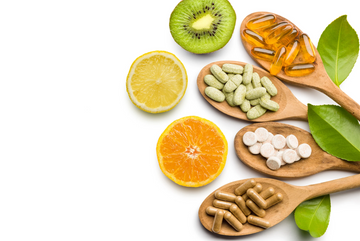Breastfeeding and Menstruation: What to Expect and How to Navigate It
Many breastfeeding mothers wonder how the return of their menstrual cycle will affect their milk supply and quality. While menstruation brings some hormonal shifts, breastfeeding continues to provide optimal nutrition for your baby. Understanding how your cycle interacts with lactation can help you feel confident and in control of your breastfeeding journey.
How Breastfeeding Affects Ovulation
Breastfeeding delays ovulation for many women due to the hormone prolactin, which is released when your baby nurses or suckles on the breast nipple. Prolactin suppresses the hormones responsible for ovulation, making it less likely for a full menstrual cycle to return immediately postpartum. However, as nursing frequency decreases (due to nighttime sleep, formula supplementation, or solid food introduction), hormone levels shift, and ovulation resumes.
Important note: Breastfeeding is not a form of birth control, as ovulation can occur before a full postpartum menstrual cycle appears.
Does Menstruation Affect Breast Milk Quality?
The nutritional composition of breast milk remains stable throughout your cycle, but small, temporary shifts occur a few days before and after ovulation:
- Sodium and chloride levels increase
- Potassium and lactose levels decrease
- These changes do not impact your baby’s overall nutrition, but some infants may notice a slight difference in milk taste, causing lower interest in breastfeeding for a few days. If your baby seems frustrated, continue offering the breast, and consider top-ups with pumped milk or solid foods (if your baby is over six months).
Menstruation and Milk Supply
- Some mothers experience a temporary dip in milk supply before their period due to hormonal fluctuations, dehydration, fatigue, stress, or reduced appetite.
- To support milk production during this time:
- Stay hydrated – Drink at least 8–10 oz of water 10–12 times per day and eat hydrating foods like grapes, melon, and cucumbers.
- Prioritize lactogenic foods – Include oats, dates, and brewer’s yeast to promote milk supply.
- Practice frequent nursing and pumping – Maintaining demand signals your body to produce more milk.
- Manage stress and rest when possible – Emotional well-being plays a role in lactation.
If you have concerns or questions about your infant’s intake of breastmilk, we recommend reaching out to your healthcare providers, including lactation consultants, midwives, pediatricians, and/or pediatric dietitians.
Source:
Special thanks to Noelle Martin, MSCF,N RD for expert insights and support.














